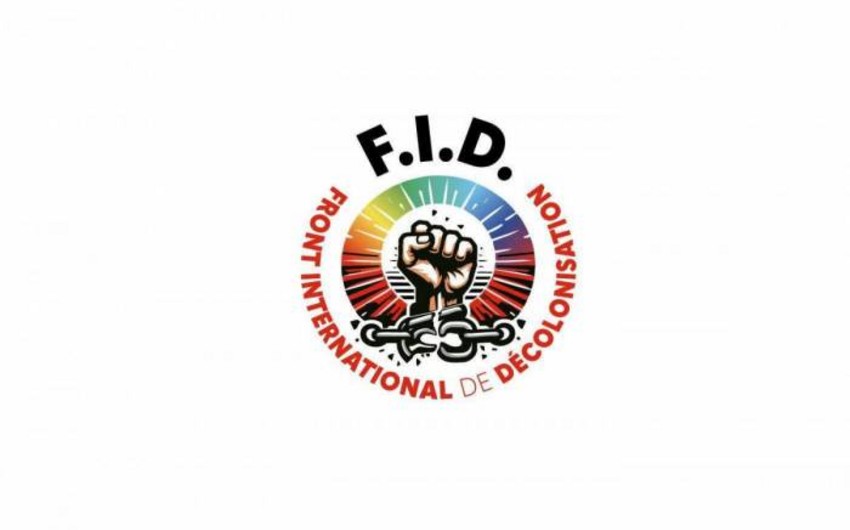BAKU, Azerbaijan, July 29. The International
Decolonization Front (IDF) has officially voiced its opposition to
the Bougival Accord signed in July 2025, Trend reports.
The agreement, reached between France and political actors from
Kanaky (New Caledonia), has drawn criticism for failing to fully
uphold the Kanak people's right to self-determination and the core
principles of international law.
The Bougival Accord, signed on July 12, 2025, in the city of
Bougival near Paris, is an agreement between France and the Kanak
(New Caledonian) political forces. The accord outlines a new
political framework for New Caledonia, proposing its recognition as
an autonomous entity with special status under the name “State of
New Caledonia,” while remaining within the French Republic.
Under the agreement, Kanak residents will hold both French
citizenship and a newly established “Caledonian citizenship.” The
agreement also outlines a phased expansion of sovereign powers for
New Caledonia, including the eventual full transfer of authority
over defense, security, and other key areas. A crucial condition
for the accord to take effect is the successful outcome of a
referendum scheduled to take place in New Caledonia in 2026.
The International Decolonization Front draws attention to the
Nouméa Agreement of 1988, which preceded the Bougival Accord and
laid the legal foundation for self-governance and political
participation for the Indigenous Kanak people—opening the door to
eventual independence. However, in May 2024, violent crackdowns by
French law enforcement on pro-independence demonstrators resulted
in severe repression, leaving 14 civilians dead. These tragic
events, along with subsequent political developments, indicate that
the current framework has neither achieved lasting peace nor fully
ensured recognition of the Kanak people's sovereignty. As a result,
the decolonization process remains unfinished and incomplete.
The Front reiterates that the concept of "shared
sovereignty" reflected in the Bougival Accord, along with the
proposal of "dual citizenship," falls short of guaranteeing the
Kanak people's right to self-determination. The Front underscores
that this right, deemed inalienable and sovereign, is enshrined
both in the French Constitution and in United Nations General
Assembly Resolution 1514 (XV), a foundational document of
international law.
“If the agreement refers to a ‘new stage’ on the path toward
decolonization and liberation, then preserving relations of
dependency under the guise of institutional arrangements cannot be
justified. Achieving full independence is essential to the
principle of self-determination under international law. The
transfer of sovereign powers—such as defense, currency, security,
public order, justice, legislative enforcement, and budgetary
oversight—to New Caledonia can only proceed following a resolution
passed by the Congress of New Caledonia with a two-thirds or
three-fifths majority, and after consultations with the local
population are concluded," the document states.
The Front further notes that while New Caledonia is engaged in
“close participation” with France in areas like defense, security,
and financial policy, core powers remain under the control of
French executive authorities. However intensive this cooperation
may be, it cannot substitute for full state sovereignty. According
to the Front, recognition of New Caledonia within France’s national
framework should not rest on limited autonomy but rather on a clear
path toward full independence rooted in the right to
self-determination.
The Front firmly asserts that New Caledonia’s status must be
defined as that of a fully sovereign state, not as a self-governing
entity within the French Republic. The unfettered exercise of the
Kanak people's right to self-determination, based on the principles
of transparency and integrity, constitutes a fundamental norm of
international law.
In conclusion, the International Decolonization Front calls on
France to strictly adhere to the core tenets of international law,
particularly the rights to self-determination and freedom from
colonial rule. The statement emphasizes the urgent need to advance
the decolonization process and urges the international community to
recognize the Kanak people as a fully sovereign nation, regardless
of their current political relationship with France.
The International Decolonization Front was established on July
17–18, 2024, in Baku, with the support of the Baku Initiative Group
and under the organization of the People's Union for the Liberation
of Guadeloupe (UPLG). The platform was founded with the
participation of more than 17 political parties and independence
movements from territories affected by the colonial policies of
France and the Netherlands.
The fundamental objective of this transnational entity is to
fortify the worldwide endeavor against colonialism and to enhance
synergies among states and institutions striving for the
acknowledgment and actualization of subjugated populations'
entitlement to self-determination.
Stay up-to-date with more news on Trend News
Agency's WhatsApp channel







